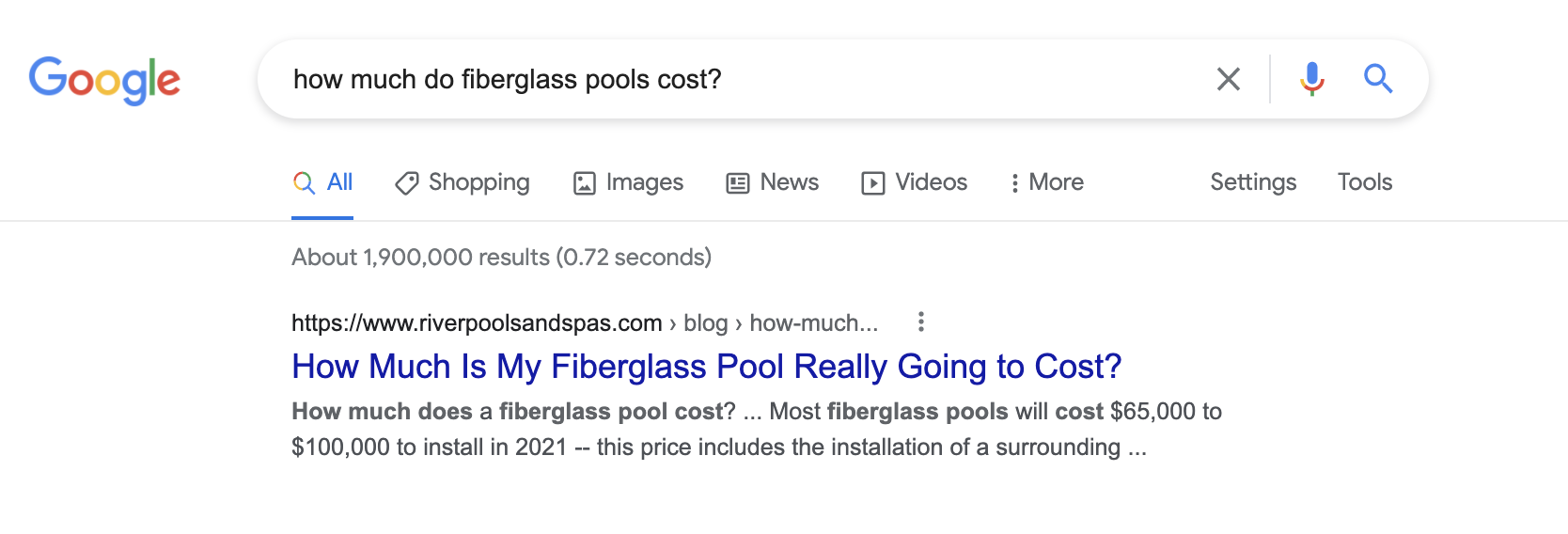Subscribe now and get the latest podcast releases delivered straight to your inbox.
[For Test Blog] Think inbound marketing is too expensive? It might be time to audit your budget

By John Becker
Jun 7, 2021
![[For Test Blog] Think inbound marketing is too expensive? It might be time to audit your budget](https://www.impactplus.com/hs-fs/hubfs/fixed-upper.jpg?width=768&height=400&name=fixed-upper.jpg)
We hear this from businesses all the time: We’d love to learn how to do inbound marketing, but we’re concerned about the investment.
It’s true. Inbound marketing can be a big investment.
First off, you need to hire the right staff. (By the way, we don’t think you should hire an agency to produce your inbound content. It’s too expensive and inefficient.)
Also, you need to pay for tech platforms like HubSpot, which represents an ongoing cost.
What’s more, writing content to attract customers takes time. You’re not going to rank on the first page of Google search results immediately.
Like most investments, inbound marketing takes time to appreciate.
But notice the language we’re using. We’re talking about a marketing investment, not a cost or an expense.
Inbound marketing is an investment, and we believe it is an invaluable one. It’s an investment in a profit center that lives on your website and serves your business better than any money you’ve been spending on marketing elsewhere.
Inbound marketing is not another budgetary expense. Rather, it is funding the future of sales and revenue at your business.
Shifting the way we think about marketing
Will Schultz is a Digital Sales & Marketing Mastery coach at IMPACT.
When he speaks to potential clients, he advises them to change their entire perspective when they think about marketing. “Inbound marketing is not comparable to any other marketing expenses like paid ads,” he says. “[Business leaders] are used to making budget decisions based on cost and return, typically looking at a monthly spend. This is totally different.”
To Schultz, it’s like the difference between renting and owning a house.
Renting offers quicker gratification. There’s no work up front — you just write a check and get the keys. Most marketing works this way. You’re renting someone’s time and expertise. You’re renting space on a billboard or a paid search ad. At the end of the month, it’s gone.
But economists will tell you that the smarter longer-term strategy is buying. Yes, it requires an investment up front, as well as plenty of elbow grease, but the result is more sustained accumulated wealth. And a place that truly feels like your own.

For too long, marketing has been seen as an expense. And often, it is. You spend money to bring in leads. At the end of the month, you don’t get your money back if those leads don’t convert.
With inbound, though, the money you spend is an investment — a down payment on your future. And you’ll put in elbow grease yourself instead of paying an agency to do it for you in perpetuity.
According to Schultz, learning to own your digital sales and marketing really means that you’re making a profit center for your organization, and this represents a mindset shift for many organizations.
So, “before you say this is too expensive,” he says, “you have to remember that unlike most marketing, you’re going to get something back at the end.”
More and more, marketing offers diminishing returns
Businesses everywhere are finding the same thing — and maybe you are, too.
Whether they’re paying for search ads or they’re sending out mailers: They keep spending more and getting less. Ads are costing more, and engagement is falling.
These trajectories present a troubling future. At some point, you’ll need to change what you’re doing. It simply won’t be worth it to continue. You’ll be paying too much for too few leads, and your ROI will no longer justify the expense.
Take paid search ads, which have a click-through rate of less than 2%. (In other words, if Google shows your ad to 100 people, less than two will click — and some by accident.) More and more, users are bypassing these ads to get to organic search results. And, when Google changes its design to make ads harder to distinguish from other results, users are furious and the company faces backlash.
Last year, Google saw an estimated 5% drop in ad revenue as people simply clicked fewer ads.
If you’re seeing diminishing returns from an ad strategy like paid media, is it time to make a change? If not now, when?
Why inbound is more affordable than you think
Think about what you spend on marketing right now.
Maybe you’re paying an agency to do outbound marketing. Or maybe you’re paying an agency to write content, to produce videos, to run your HubSpot portal, or to write and schedule your marketing emails.
Add it all together. Is this a worthwhile expense for your business? Is it generating enough revenue?
By contrast, your investment in inbound is internal. Yes, you’ll have salaries and tech costs that will be ongoing, but you’re building a robust knowledge base that will pay dividends for years.
They Ask, You Answer author Marcus Sheridan talks about how one article he wrote for his Pool company more than twelve years ago has made tens of millions of dollars over that time.
Customers want to know about price, and they start learning by doing a Google search. When they type in their question, his article comes up first.
They click through and start reading. Immediately, they start to build a relationship with Marcus and his company. Soon, they read more content and schedule a meeting. Months later, they put a down payment on a pool.
The article is the first step, the down payment is the last.
Without that article, the down payment wouldn’t happen.
That article still sits atop Google search results. It still drives loads of traffic each month. For free. Marcus pays nothing, while month after month this article drives thousands of prospects to his site.

What did it cost Marcus to write that article? Some sweat equity, a good deal of knowledge, and the courage to be candid with his audience.
But maybe the better question is this: What would it have cost Marcus if he *didn’t* write that article?
The most effective path to inbound marketing success
There have been thousands of companies who have built in-house inbound marketing superpowers, but they rarely get there without guidance.
Trying to employ an inbound strategy like They Ask, You Answer on your own can lead to some frustration. You’ll learn lessons the hard way and almost certainly miss some opportunities.
At IMPACT, we offer comprehensive inbound marketing training that’s designed to get you to fully competent independence in 12, 18, or 24 months. This means everything from content strategy and SEO to HubSpot proficiency and sales instruction.
Alternately, we offer free courses through IMPACT+, our online learning community.
Whether you choose IMPACT or another training organization, your inbound marketing efforts will be enhanced when you learn from those who’ve done it before.
Even with the added cost of training, inbound marketing will still be much cheaper than paying an agency to do the things you can better do yourself.
- Want a primer for effective inbound marketing? Start with this free course: Digital Sales & Marketing Framework for Today’s Modern Buyer
- Want to learn more about IMPACT’s inbound training program? Check out What’s included in IMPACT’s comprehensive Digital Sales & Marketing Mastery program?
Does your budget match your priorities?
An IMPACT sales rep was recently speaking to a business leader who was very interested in inbound marketing training. However, he said, they just couldn’t afford it. Over the course of the conversation, he mentioned that his company was spending around $20,000 per month on paid search ads.
They were seeing only a handful of leads come in this way each month, and these leads rarely converted.
Still, he was hesitant to cut back his spending.
Maybe he felt like cutting back would be giving up. Maybe he was hopeful numbers would look better in the next few months.
In any case, he elected not to invest in the inbound training because it was too expensive.
All budgets are about priorities. When you’re debating a new investment, you’re really debating a shift in priorities.
As you look over your budget, does it match your priorities? Is it setting you on a path for sustained, long-term growth — or are you spending more and more to get less and less from the same strategies?
When will it be time to do something different?
Free Assessment: